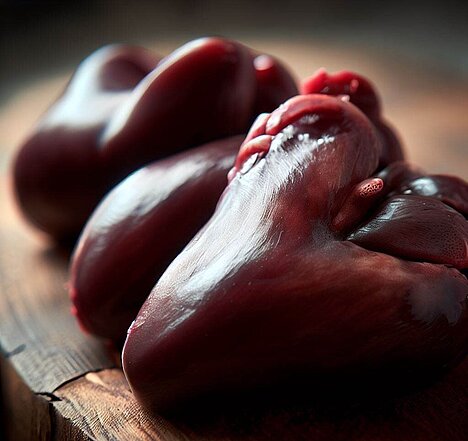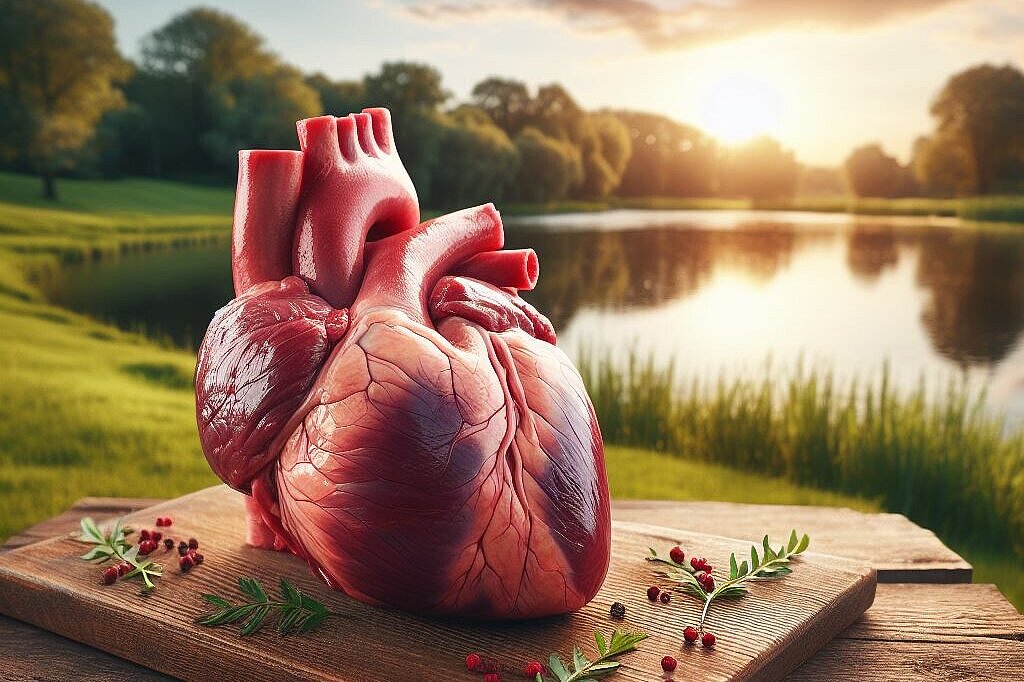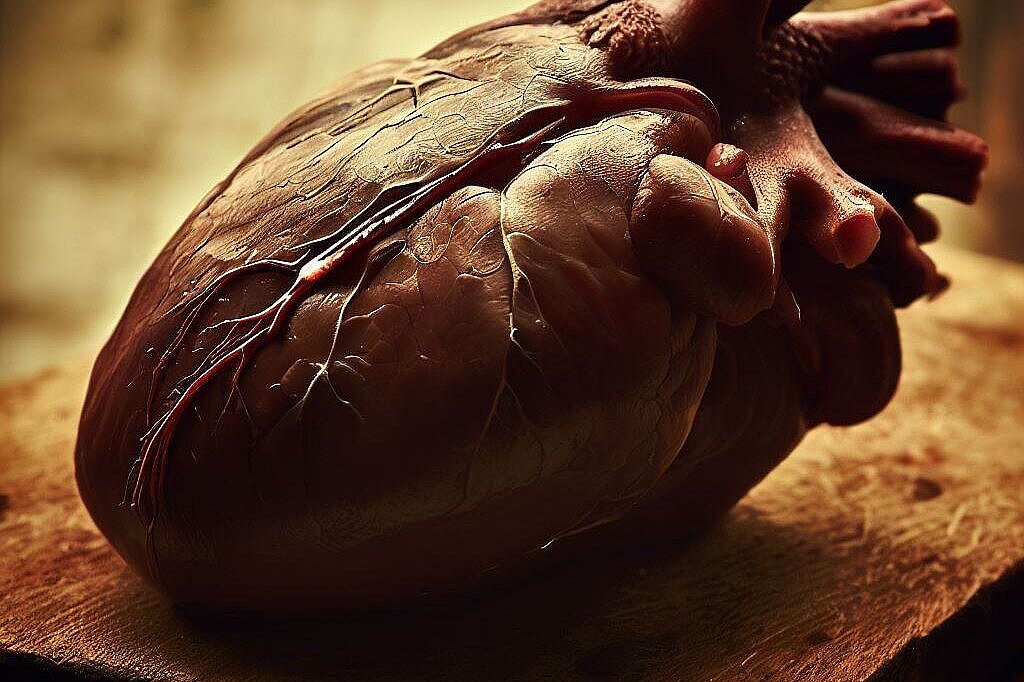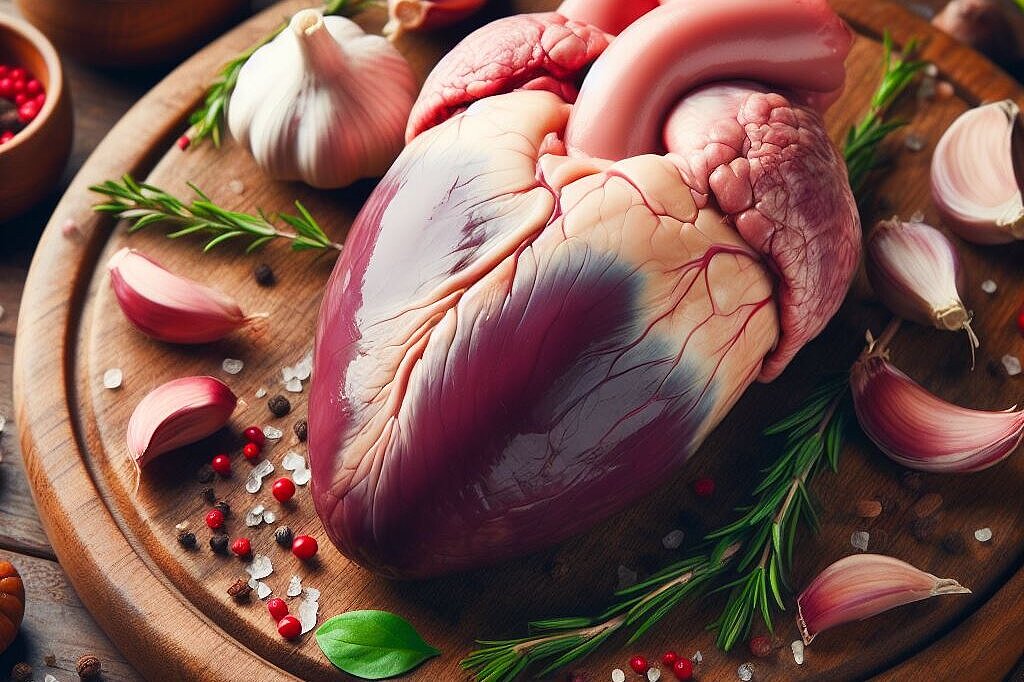Deer hearts

Deer hearts are a popular snack for dogs that offers many benefits. But what exactly are deer hearts and what should you look out for when feeding them to your four-legged friend? This article will tell you everything you need to know about this special ingredient.
What is a deer heart?
Deer hearts are the hearts of deer that are considered game meat. This means that they come from natural and species-appropriate husbandry and contain no hormones or antibiotics. Deer hearts are rich in protein, iron, zinc and vitamin B12. They also have a low fat content and are therefore ideal for overweight dogs or dogs with allergies.
What are the benefits of venison heart for dogs?
Venison heart has many benefits for your dog's health and well-being. Here are some of them:
- Deer heart strengthens your dog's muscles and immune system as it provides plenty of protein.
- Deer hearts support blood formation and oxygen transport in your dog's body as they contain a lot of iron.
- Deer hearts strengthen your dog's bones and teeth because they contain a lot of zinc.
- Deer hearts improve your dog's nerve function and metabolism as they are high in vitamin B12.
- Deer hearts are easy to digest and are very tasty for many dogs.
What are the disadvantages of venison hearts for dogs?
While deer hearts are a healthy and tasty ingredient for your dog, there are some disadvantages you should consider. Here are some of them:
- Venison hearts can contain parasites that can be dangerous for your dog. Therefore, you should always cook them well or freeze them before giving them to your dog.
- Deer hearts can contain too much iron, which can lead to iron overload. Therefore, do not feed them too often or in too large quantities.
- Deer hearts can cause diarrhea or vomiting if your dog is intolerant or allergic to them. You should therefore always introduce them slowly and observe your dog's reaction.
How do I feed deer hearts to dogs?
You can offer venison hearts as a snack between meals or as a supplement to their normal food. You can feed them raw, cooked or dried. However, always make sure to cook or freeze them well beforehand to kill parasites. You should also adjust the amount depending on your dog's size, age and activity level. As a rule of thumb, offal should not make up more than 5% of your dog's daily energy requirement.
Venison hearts are a great ingredient for your dog, offering many health benefits. They are rich in protein, iron, zinc and vitamin B12 and have a low fat content. They are also easy to digest and many dogs find them very tasty. However, there are also some disadvantages, such as the risk of parasite infestation, iron overload or intolerances. You should therefore always cook or freeze venison hearts thoroughly, not feed them too often or in too large quantities and observe your dog's reaction. With these tips, you can offer your dog a tasty change.
If you notice any signs of hypersensitivity or poisoning in your dog, you should see your vet immediately. We are not a substitute for a vet, but we try to be as accurate as possible. Every dog reacts differently and we recommend you get a second opinion or consult your vet if in doubt.
Stay healthy and take good care of your four-legged friend!😊
Similar to Deer hearts
Beef hearts are, as the name suggests, the hearts of cattle. They belong to the so-called offal or organ meat, which is often regarded as a by-product of the meat industry. However, they are a...
Benefits of reindeer hearts for dogs Reindeer hearts are a monoprotein, which means that they contain only one source of protein. This is particularly suitable for dogs with allergies or intolerances...
Horse hearts are the heart muscles of horses that are kept for slaughter. They are rich in protein, iron and vitamin B12 and are high in taurine, an amino acid that is important for heart health....
Pig hearts are the hearts of pigs that are a by-product of slaughtering. They belong to the so-called offal, which is often used as animal feed or in the kitchen. Pig hearts consist mainly of muscle...



